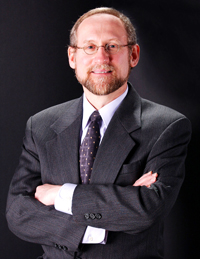Ten Commandments Controversy is Lecture Topic
 |
Paul Finkelman |
The Ten Commandments--should they be displayed in government
settings, and is there historic justification to do so? These
are topics for this spring's Faculty Distinguished Lecturer Series
at Sam Houston State University.
Paul Finkelman, Chapman Distinguished Professor at the University
of Tulsa College of Law, will speak on the topic "Are the
Ten Commandments the Basis of American Law: Ten Commandments
and Public Space."
Finkelman's presentation is scheduled for 11 a.m. April 11 in
Olson Auditorium in Academic Building IV.
Since 2000 there have been a number of controversies over the
posting of the Ten Commandments on public property. The most
famous of these centered on a 5,500-pound monument placed in
the rotunda of the Alabama Supreme Court Building.
Last year a divided U. S. Supreme Court upheld the right of
Texas to keep a similar monument on its statehouse grounds, but
struck down a Kentucky law requiring the posting of the Ten Commandments
in county courthouses.
Finkelman's lecture will focus on two aspects of the debate.
First, whether it is possible to erect a "neutral" Ten Commandments
plaque or monument that would neither favor any particular religious
faith nor violate the Establishment Clause of the First Amendment.
The second part of the lecture focuses on the claim of Chief
Justice Roy Moore of Alabama, and others, that the Ten Commandments
represent the "moral foundation of American law," and monuments
honoring such commandments are not religious but "historical" in
nature.
Among his many accomplishments, Finkelman was an expert witness
in the Alabama case. His versatility is also evident in the fact
that he had a similar involvement in a lawsuit over the ownership
of Barry Bonds' 73rd home run ball.
Finkelman has written more than 50 articles and authored or
edited more than 20 books such as Defending Slavery: Proslavery
Thought in the Old South (2003), Slavery and the Founders:
Race and Liberty in the Age of Jefferson (2001 ), Religion
and American Law: An Encyclopedia (2000), and An Imperfect
Union: Slavery, Federalism, and Comity (1981).
He currently teaches constitutional law and American legal history
at the University of Tulsa College of Law and has also taught
at the University of Akron Law School and the University of Texas
at Austin. He has served as a fellow in law and the humanities
at Harvard Law School.
He received both his master's degree and doctorate from the
University of Chicago and his undergraduate degree from Syracuse
University.
The Faculty Distinguished Lecturer Series has included such
noteworthy figures as former president George Bush, Poland's
president and Communism foe Lech Walesa, John Kenneth Galbraith,
and many others.
—END—
SHSU Media Contact: Frank Krystyniak
April 4, 2006
Please send comments, corrections, news tips to Today@Sam.edu.
|


